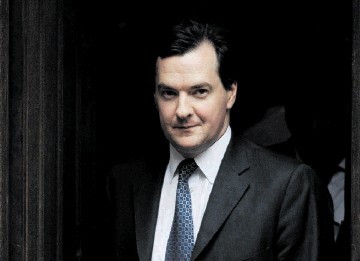
Chancellor George Osborne has confirmed that he will cut North Sea oil and gas taxes.
He pledged to reduce the supplementary charge from 32% to 30%, expand the ring-fenced expenditure supplement from six to 10 years, and introduce a new cluster area allowance.
The UK Government insisted that the changes would trigger billions of pounds of investment in the North Sea and create thousands of new jobs.
The cut in the supplementary charge represents a partial climb-down by the chancellor, who infamously almost wiped out investment at a stroke when he hiked it from 20% to 32% without consultation in 2011.
Danny Alexander, the chief secretary to the Treasury, will travel to Aberdeen tomorrow to unveil the government’s detailed plans for the North Sea, which follow a review of the fiscal regime.
Mr Osborne delivered his fifth and final pre-election Autumn Statement against a backdrop of falling global oil prices, rising costs, and widespread industry demands for action.
Speaking in the Commons, he said: “The fall in the global oil price has meant a welcome boost to much of the British economy and families.
“There is record investment this year in the North Sea, but the lower oil price clearly presents a challenge to this vital industry.
“My right honourable friend the chief secretary will set out our full proposals in Aberdeen tomorrow.
“But I can tell the House today that we will go ahead with an immediate reduction in the rate of the supplementary charge from 32% to 30%.
“We will expand the ring-fenced expenditure supplement from six to 10 years.
“And we’re introducing with immediate effect a new cluster area allowance.
“This demonstrates our commitment to the tens of thousands of jobs that depend on this great British industry.”
Speaking afterwards, Mr Osborne said that the announcement tomorrow would “try to set a longer road map for the direction we want to head in” on North Sea taxes.
He added: “These industry investment decisions are made over long cycles so that people have a predictability about the future of the British oil and gas tax regime so we get the maximum oil out of the basin.”
Tom Cartwright, North Sea tax specialist at legal firm Pinsent Masons, gave a lukewarm response.
“It’s crunch time for UKCS, with growing concern that the ‘lights could go out’, UK production is diminishing and reserves are increasingly difficult to access,” he said.
“The reduction of supplementary charge to 30%, a small boost to the tax value of expenditure to exploration companies, and a new tax allowance for ultra-high pressure/high temperature fields is a good start but is it enough?
“The global oil and gas industry is in the midst of a transformation, grappling with weaker demand and continued regulatory and political instability which is contributing to price fluctuations.
“The UKCS faces severe headwinds with a collapsing oil price. Today’s announcement is indeed a step in the right direction for an industry under mounting pressure, but the further easing of the very high oil and gas tax rates is top of the industry wish list and would be a high impact move by Treasury.
“All eyes will be on Aberdeen tomorrow when further details are due to be announced.”
John Hutchinson, managing Partner of Epi-V, specialist investors in oil and gas, said: “Tax reduction for the North Sea provides a much needed vote of confidence to the UK oil and gas industry.
“Investors have been concerned about ageing wells, declining production levels and current sliding oil prices, but the chancellor’s statement today should encourage investment into innovative, new ways to extract oil from more difficult places, more cheaply, more efficiently and with lower risk.”
Sir Robert Smith, MP for West Aberdeenshire and Kincardine, has said: “In the lead up to today’s announcement I have been calling on the Chancellor to take steps to encourage investment in North Sea exploration and production.
“I also raised concerns about job losses in the North East and a downturn in confidence even without a fall in oil prices.
“Today’s announcement sends a signal that the Coalition is committed to maximising the economic benefits of the North Sea. This should give investors greater confidence to support new North Sea projects, in turn helping to protect vital jobs.
“In addition to the 2% reduction to the rate of the supplementary charge, the introduction of a new cluster area allowance and an extension to the ring fence expenditure supplement to 10 years will also help support investment by companies.”
Recommended for you
